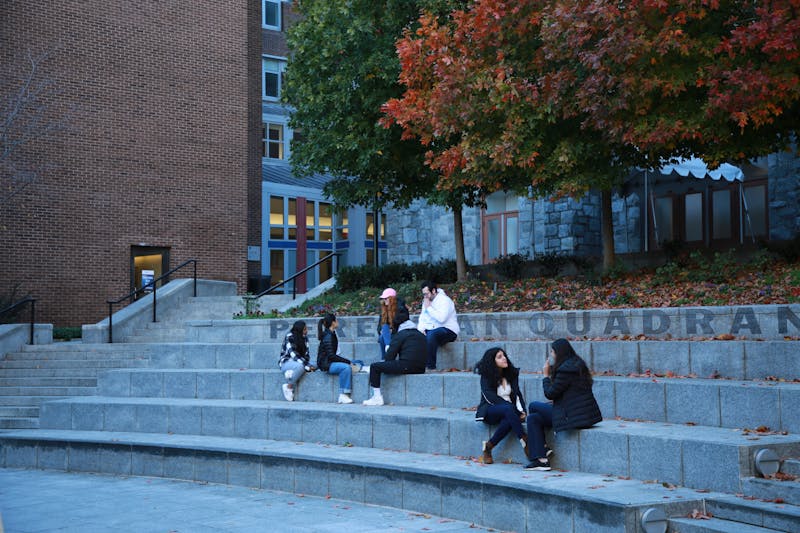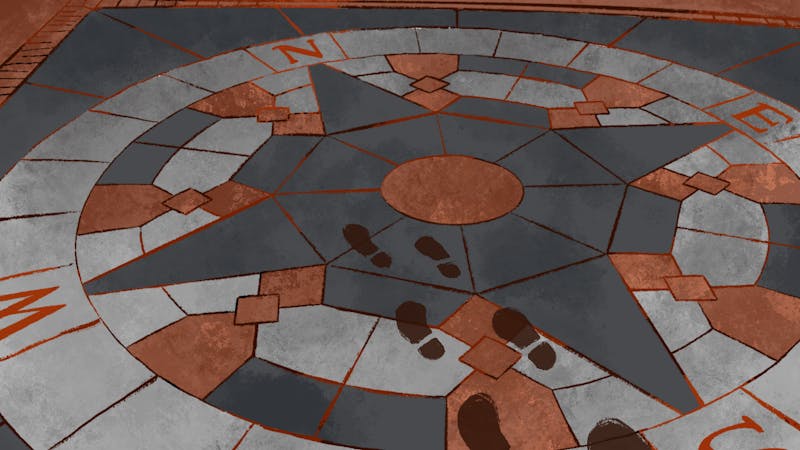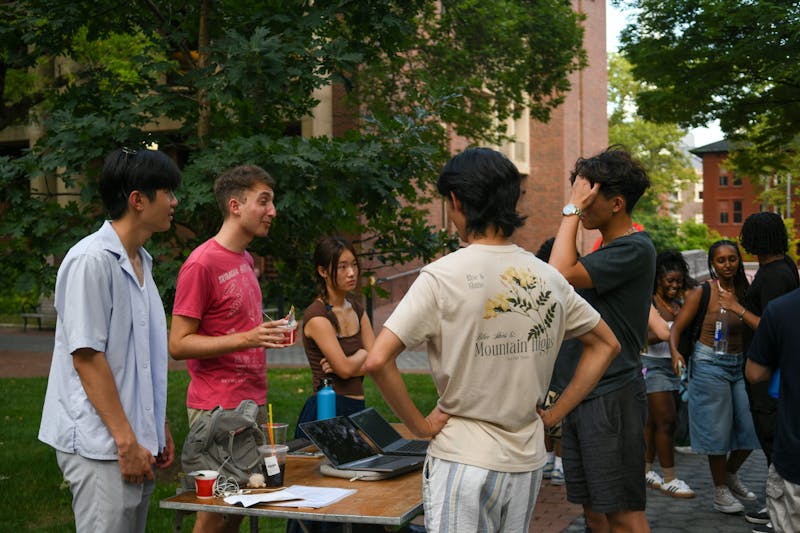
Think Rory Gilmore, Amory Blaine, Carmen Lowell, and practically every character in “The Sex Lives of College Girls.” For these characters, and the young and free high school graduates watching them, college appears to be a period of self-discovery and wild liberation. College functions as a sort of dress rehearsal for the play of life. There are no stakes in trying on a dress you’d never wear, playing an identity you haven’t tried, or testing an experience that might not work. There’s no pressure of permanence but rather a fleeting chaos of just “becoming.” College is meant to embody freedom and introspection, expression without fear or limitation. Yet at Penn, this ideal feels out of reach.
As a student from a small high school, I was exhilarated to escape the watchful gaze and narrow judgements of my peers. I was coming to Penn, and I was ready to find the real me; ready to have my Felicity moment or blossom in university like Marianne Sheridan. However, what I soon found is that after New Student Orientation, Penn was functioning in the same ways as high school did. It suddenly wasn’t the mid-sized university I was promised. Everyone knows everyone, and if you don’t, you know their friend, roommate, classmate, etc.
There’s nothing wrong with having a close community — in some cases, it can help Penn feel more manageable. The problem arises when students organize themselves into high school-esque cliques and spread information about other students.
I would lie if I said I hadn’t participated in the same process with friends — the nightly categorizing of new information about our peers, building a sort of filing system with their profiles. This process was a buoy to catch my flailing and nervous first-year self in a sea of strangers. I began organizing people by their associations as if a club, greek organization, or major could tell me everything I needed to know about them.
Suddenly, it seemed as if I recognized everyone I saw at Stommons. I’d already been briefed with their life story, embarrassing nights, and current situationships. People I’d never met were doing the same thing, reciting information about my own life I’d never shared with them. This attitude is counterproductive to the liberated exploration that college should be, feeling much more like the shackles holding me down in my small town.
Sidechat boasts thousands of posts by Penn students each day, all anonymously. The spread of information goes beyond word of mouth, with little “Penn” usernames discussing people on campus with their initials. No information is safe, and often, it’s not the kindest.
I’m far from praising Sidechat, but I’m more interested in examining why Penn students rely on anonymity so much. The anonymous app feels like the only medium in which students are truly expressing their unfiltered thoughts, experiences, and discussions about campus culture. Why is this so? Does Penn’s culture require anonymity?
The short answer is yes, but it shouldn’t have to.
An ongoing critique of elite universities is their lack of free speech and tolerance. In a 2024 survey by the Foundation for Individual Rights and Expression, Penn was ranked fourth-worst for free speech on campus. Free speech is typically discussed in the realm of political opinions being stifled, but freedom of speech goes beyond politics. If discussing intimate parts of your life means that information shared in confidence is spread, discussed, and defiled, how is it really free? Can students really discover themselves and gain their own perspective?
You guessed it: They can’t. Penn’s culture has students using anonymity as a crutch. Students can’t speak freely or act freely in a way that is integral to our development in college.
I see the allure of anonymity, and as an opinion columnist I still often struggle to articulate thoughts in class, social situations, and even writing, fearing social consequences. As a student newspaper, The Daily Pennsylvanian aims to report on and expose Penn students to these real conversations. Yet gathering student perspectives is harder than ever. Students are hesitant to express or speak without anonymity in fear they will alienate themselves and face social repercussions, especially in subjects pertaining to greek life, politics, and campus dynamics. Discussion of these topics is confined to the hallowed dorm rooms and silent walls of GSRs.
Penn should foster an environment where students feel free to express themselves. We should feel emboldened to speak out through our opinions and reveal our true selves, even when that means being wrong.
In the age of media activism, the terms “safe spaces” and “cancel culture” are popular yet invisible and are untouchable boundaries that dictate how we interact with each other. 2020 College graduate and former DP opinion columnist Ton Nguyen says it best: “Harmful language should never be tolerated. But consider the dangers of silencing people’s true opinions. We can hold a critical view of the world while also checking our own egos and biases to understand where others are coming from.” Penn students are far from perfect, and we shouldn’t expect every word or action from young adults to be perfect.
However, on a campus that makes any expression a risk, we cannot expect valuable exploration to occur. Penn should create a community where anonymity isn’t required to speak and nurture a culture that celebrates diversity in thought. We must give our peers more grace than what we hear about them and learn to hear their thoughts with consideration rather than judgement. Students, take off the masks you wear — over anonymous platforms, but also in real life. College is meant to be wild and messy and experimental and freeing. Make Penn a place where discovering who we are doesn’t have to come with consequences. Speak up and mess up. We shouldn’t need anonymity to do so.
PIPER SLINKA-PETKA is a College first year studying health and societies from West Virginia. Her email address is pipersp@sas.upenn.edu.
The Daily Pennsylvanian is an independent, student-run newspaper. Please consider making a donation to support the coverage that shapes the University. Your generosity ensures a future of strong journalism at Penn.
Donate











